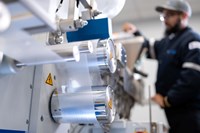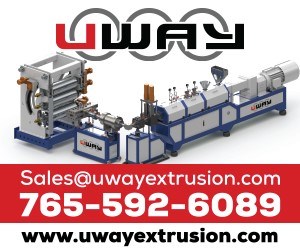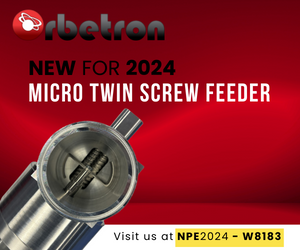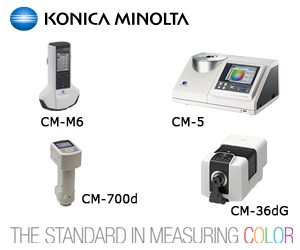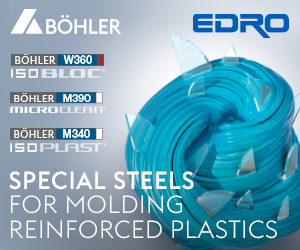One of the First Portfolios of Sustainable TPEs Commercially Launched
Audia Elastomers’ new AudiaFlex TPEs are produced from post-consumer, post-industrial, biobased, and marine waste based sources.
A new family of TPEs from Audia Elastomers, Washington, Penn., is reportedly one of the first commercial portfolios of ‘sustainable’ TPEs which meet the sustainability needs of brand owners and consumers. The AudiaFlex family of TPEs is comprised of customizable grades which are produced from post-consumer, post-industrial, bio-based, and marine-based sources.
Said v.p. of sales & marketing Frank Axelrod, “The AudiaFlex product line is a reflection of Audia’s commitment to sustainability. We’re directly responding to the market forces that are demanding new sustainable material options.” Specifically, Axelrod pointed to legislation on single-use plastics, growing consumer demand for sustainable products, and the commitment from brand owners to achieve sustainability goals over the next five years.

AudiaFlex materials reportedly mirror the properties of most virgin TPEs and deliver comparable capabilities in terms of haptics, color, adhesion, and durometer. They can compete in high-performance applications with conventional TPEs, TPVs, and TPU chemistries in personal care, consumer household, consumer electronics, automotive, and toys. AudiaFlex grades are manufactured at Audia facilities in Lafayette, Ga. and Shenzhen, China. The AudiaFlex family includes:
▪ OP line of TPEs based on marine waste plastics. The OP line of elastomer materials includes products with up to 45% marine waste and 70% total recycled material content in a wide hardness range from 20 Shore A to 95 Shore A. Audia is focused on recapturing beach cleanup materials, commercial fishing gear, and ocean-bound plastics as the source for its OP line.
▪ PC line, based on post-consumer recyclate, is offered with 5-50% PCR content in hardness from 20 Shore A to 95 Shore A. These materials have defined supply sources with consistent color (i.e., yogurt cups) and provide FDA compliance.
▪ PI materials are based on post-industrial sources including custom circular solutions available using customer-sourced materials. They incorporate 5-70% post-industrial recyclate (PIR) content and come in hardness from 20 Shore A to 95 Shore A.
▪ Bio TPEs consist of 5-90% of bio-based content per ASTM D6866. Specific formulations are available for oxo-degradable and compostable applications in hardness from 20 Shore A to 95 Shore A.
Related Content
-
Noncrosslinking TPEs for Cold, Warm, Hot Water
Thermolast DW compounds are aimed at seals and sanitary components that come in contact with hot water.
-
AGC Chemicals Opens New Office in California
Company’s new office to support advanced materials needs of northern West Coast’s semiconductor and electronics manufacturers.
-
Fast-Cycling Selective Laser Sintering System
Nexa3D announced the QLS 260 for metal and polymer production.





